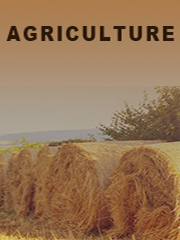TOP CATEGORY: Chemicals & Materials | Life Sciences | Banking & Finance | ICT Media

Download Report PDF Instantly
Report overview
The global Non- GMO Soybeans market was valued at US$ 56270 million in 2023 and is projected to reach US$ 67660 million by 2030, at a CAGR of 2.6% during the forecast period.
The USA Global market is estimated to increase from USD million in 2022 to reach USD million by 2030, at a CAGR during the forecast period of 2023 through 2030.
The China Global market is estimated to increase from USD million in 2022 to reach USD million by 2030, at a CAGR during the forecast period of 2023 through 2030.
The Europe Global market is estimated to increase from USD million in 2022 to reach USD million by 2030, at a CAGR during the forecast period of 2023 through 2030.This research report provides a comprehensive analysis of the Non- GMO Soybeans market, focusing on the current trends, market dynamics, and future prospects. The report explores the global Non- GMO Soybeans market, including major regions such as North America, Europe, Asia-Pacific, and emerging markets. It also examines key factors driving the growth of Non- GMO Soybeans, challenges faced by the industry, and potential opportunities for market players.
The global Non- GMO Soybeans market has witnessed rapid growth in recent years, driven by increasing environmental concerns, government incentives, and advancements in technology. The Non- GMO Soybeans market presents opportunities for various stakeholders, including Household, Pharmaceuticals. Collaboration between the private sector and governments can accelerate the development of supportive policies, research and development efforts, and investment in Non- GMO Soybeans market. Additionally, the growing consumer demand present avenues for market expansion.
Global Non-GMO Soybean key players include Amaggi, Yuwang Group, Puris Proteins, Primavera, Sojaprotein,Grain Millers, Inc., Clarkson Grain Company, Espartina S.A., Sinograin, etc. Global top nine manufacturers hold a share over 3.5%.
Asia-Pacific is the largest market, with a share about 55%, followed by Europe, and North America, both have a share over 35 percent.
In terms of product, Plain Non-GM Soybeans is the largest segment, with a share over 45%. And in terms of application, the largest application is Human Consumption, followed by Animal Feed, etc.
Key Features:
The research report on the Non- GMO Soybeans market includes several key features to provide comprehensive insights and facilitate decision-making for stakeholders.
Executive Summary: The report provides overview of the key findings, market trends, and major insights of the Non- GMO Soybeans market.
Market Overview: The report provides a comprehensive overview of the Non- GMO Soybeans market, including its definition, historical development, and current market size. It covers market segmentation by Type (e.g., Nature, Greenhouse), region, and application, highlighting the key drivers, challenges, and opportunities within each segment.
Market Dynamics: The report analyses the market dynamics driving the growth and development of the Non- GMO Soybeans market. The report includes an assessment of government policies and regulations, technological advancements, consumer trends and preferences, infrastructure development, and industry collaborations. This analysis helps stakeholders understand the factors influencing the Non- GMO Soybeans market's trajectory.
Competitive Landscape: The report provides an in-depth analysis of the competitive landscape within the Non- GMO Soybeans market. It includes profiles of major market players, their market share, strategies, product portfolios, and recent developments.
Market Segmentation and Forecast: The report segment the Non- GMO Soybeans market based on various parameters, such as by Type, region, and by Application. It provides market size and growth forecasts for each segment, supported by quantitative data and analysis. This helps stakeholders identify growth opportunities and make informed investment decisions.
Technological Trends: The report should highlight the key technological trends shaping the Non- GMO Soybeans market, such as advancements in Type One technology and emerging substitutes. It analyses the impact of these trends on market growth, adoption rates, and consumer preferences.
Market Challenges and Opportunities: The report identify and analyses the major challenges faced by the Non- GMO Soybeans market, such as technical bottleneck, cost limitations, and high entry barrier. It also highlights the opportunities for market growth, such as government incentives, emerging markets, and collaborations between stakeholders.
Regulatory and Policy Analysis: The report should assess the regulatory and policy landscape for Non- GMO Soybeans, including government incentives, emission standards, and infrastructure development plans. It should analyse the impact of these policies on market growth and provide insights into future regulatory developments.
Recommendations and Conclusion: The report conclude with actionable recommendations for stakeholders, such as Application One Consumer, policymakers, investors, and infrastructure providers. These recommendations should be based on the research findings and address key challenges and opportunities within the Non- GMO Soybeans market.
Supporting Data and Appendices: The report include supporting data, charts, and graphs to substantiate the analysis and findings. It also includes appendices with additional detailed information, such as data sources, survey questionnaires, and detailed market forecasts.
Market Segmentation
Non- GMO Soybeans market is split by Type and by Application. For the period 2019-2030, the growth among segments provides accurate calculations and forecasts for consumption value by Type, and by Application in terms of volume and value.
Market segment by Type
Market segment by Application
Global Non- GMO Soybeans Market Segment Percentages, By Region and Country, 2023 (%)
Major players covered
Outline of Major Chapters: